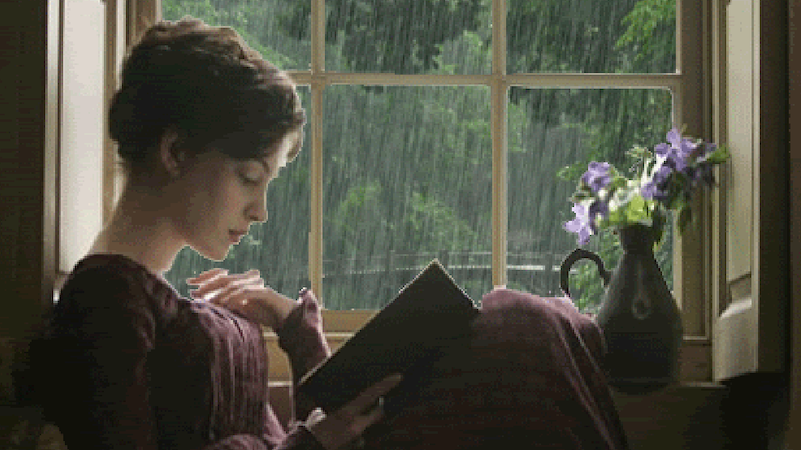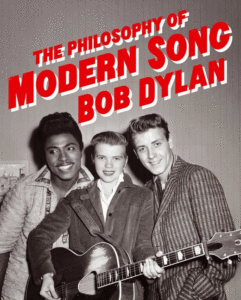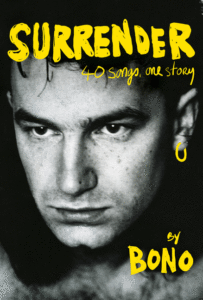
Bono’s Surrender, Bob Dylan’s The Philosophy of Modern Song, Claire Keegan’s Foster, and Graeme Macrae Burnet’s Case Study all feature among the Best Reviewed Books of the Week.
1. Foster by Claire Keegan
(Grove)
9 Rave • 3 Positive
“Keegan’s beautiful new novella, Foster, is no less likely to move you than any heaping 400-page tome you’ll read this year … Keegan’s novella is a master class in child narration. The voice resists the default precociousness, and walks the perfect balance between naïveté and acute emotional intelligence … Keegan averts expectations in the couple’s portrayal, which brings Foster some welcome levity … Like a great, long Ishiguro novel, Keegan makes us complicit in what her characters want, setting us up for utter heartbreak when they don’t get it.”
–Alex Gilvarry (The New York Times Book Review)
2. Case Study by Graeme Macrae Burnett
(Biblioasis)
9 Rave • 2 Positive • 1 Mixed
Read an excerpt from Case Study here
“An interest in exploring complex psychological dramas through intricate narrative structures takes centre stage … The defining essence of Burnet’s work to date is to be found in…literary gamesmanship, a brand of metatextuality that is as much about exploiting the possibilities of the novel form as it is about blurring the boundaries between appearance and reality. In throwing us into doubt about which—and more crucially whose—story we are supposed to be following, Burnet encourages us to look more closely at the inherent instability of fiction itself … Case Study is above all a very funny book, a wry look back at 60s counterculture in which Burnet’s inventions rub shoulders with real personalities. But much as Braithwaite’s outlandish behaviour and performative rudeness might raise a knowing smile, his theories on identity and selfhood, appearance and reality are never as bonkers as we pretend they are. If Burnet’s aim in writing Case Study was to force us up against the contradictions of our conflicted selves, he has surely succeeded. This is a novel that is entertaining and mindfully engrossing in equal measure.”
–Nina Allan (The Guardian)
3. The Seven Moons of Maali Almeida by Shehan Karunatilaka
(W. W. Norton & Company)
4 Rave • 4 Positive • 1 Mixed
“Written in the second person, which gives the narrative a slightly distancing effect, but it’s compensated for by the sardonic humour … The obvious literary comparisons are with the magical realism of Salman Rushdie and Gabriel García Márquez. But the novel also recalls the mordant wit and surrealism of Nikolai Gogol’s Dead Souls or Mikhail Bulgakov’s The Master and Margarita. The scenarios are often absurd—dead bodies bicker with each other—but executed with a humour and pathos that ground the reader. Beneath the literary flourishes is a true and terrifying reality: the carnage of Sri Lanka’s civil wars. Karunatilaka has done artistic justice to a terrible period in his country’s history.”
–Tomiwa Owolade (The Guardian)
**

1. The Philosophy of Modern Song by Bob Dylan
(Simon & Schuster)
8 Rave • 7 Positive • 5 Mixed • 1 Pan
“It is filled with songs and hyperbole and views on love and lust even darker than Blood on the Tracks … There are 66 songs discussed here … Only four are by women, which is ridiculous, but he never asked us … Nothing is proved, but everything is experienced—one really weird and brilliant person’s experience, someone who changed the world many times … Part of the pleasure of the book, even exceeding the delectable Chronicles: Volume One, is that you feel liberated from Being Bob Dylan. He’s not telling you what you got wrong about him. The prose is so vivid and fecund, it was useless to underline, because I just would have underlined the whole book. Dylan’s pulpy, noir imagination is not always for the squeamish. If your idea of art is affirmation of acceptable values, Bob Dylan doesn’t need you … The writing here is at turns vivid, hilarious, and will awaken you to songs you thought you knew … The prose brims everywhere you turn. It is almost disturbing. Bob Dylan got his Nobel and all the other accolades, and now he’s doing my job, and he’s so damn good at it.”
–David Yaffe (AirMail)

2. Surrender: 40 Songs, One Story by Bono
(Knopf)
4 Rave • 7 Positive • 1 Mixed
“Defined largely by humility. This is an introspective story written by a man whose spirit is never far removed from the sadness and grief of his childhood … Honest and direct … Surrender is more a van of a book than a private plane. It shrinks more ego than it inflates. Bono makes no bones about his outsized ambitions, but there’s always a fallible human being behind the big plans and then the superstardom … By no means operatic. There’s a casual charm to the memoir, a feeling of being led through caverns of story by a guide with some things to get off his chest … This is the rare rock star memoir written by a rock star who, you get the impression, could have been a writer … U2 fanatics might already know much of the material in Surrender. For the rest of us, there’s something to discover in every chapter. Bono has a gift for making even the unattainable seem relatable … He’s humble, even self-effacing. He might be fun to have a beer with. He is very much of this Earth.”
–Chris Vognar (The Los Angeles Times)
3. The Island of Extraordinary Captives: A Painter, a Poet, an Heiress, and a Spy in a World War II British Internment Camp by Simon Parkin
(Scribner)
5 Rave • 4 Positive
“A truly shocking story…electrifyingly told by the journalist and historian Simon Parkin, whose breadth and depth of original research has produced an account of cinematic vividness … Parkin skillfully draws the reader into the serendipitously rich environment in which Fleischmann, along with a constellation of some of the most brilliant artistic, philosophical and scientific minds of the day, suddenly found themselves.”
–Juliet Nicholson (The New York Times Book Review)

